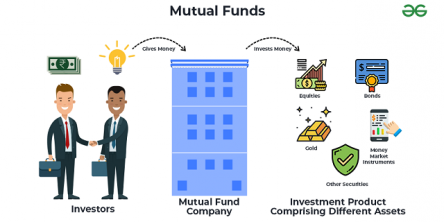What Type of Bank Account Is Right for You?

There are several types of bank account in the UK, and with so many choices, it can be hard to know which type of account suits your needs the most. But worry not, this guide is going to help you understand the different types of bank account and their advantages and disadvantages.
Fee-Free Basic Account
This type of account is the most basic account that you can have; however, because of this, it offers fewer services than a regular current account.
With a fee-free basic account you can:
- Have wages, benefits and other income paid into the account
- Pay money and cheques into the account for free (must be British currency)
- Withdraw money from a branch or cash machine
- Set up Direct Debits or standing orders
- Check account balances in a branch, at a cash machine, online or on your mobile
- Use a debit card to pay in-store and online
Current Account
A current account is the standard banking account in the UK that most people have. These accounts have the same functions as the basic account above and added capabilities as follows:
- You receive a cheque-book, as well as a debit card
- You are eligible for overdraft facilities
- You’ll get monthly or quarterly bank statements
- Internet access, online, in-app and telephone banking are usually available
Savings Account
A savings account is an account where you can put your money so it can grow in value over time by accruing interest. Anyone can open a savings account, and they can be paid into at any time. There are also different access limitations depending on the type of savings account you open.
An instant-access savings account is one where you can instantly add to or withdraw from it at any point in time. A notice account requires you to give notice (such as 60 days) to withdraw money or else you will be charged a penalty. A regular saver requires you to save up a set amount each month, and a fixed bond is a savings account that locks your money away for fixed-term and often has a fixed interest rate for the whole term.
Student Account
A student current account has all of the same capabilities as a regular current account. However, it does have some additional benefits for students. These accounts will typically come with an interest-free overdraft up to a certain amount, and extra freebies such as railcards, discounts and just free money for choosing that bank. After your time as a student ends, you are free to close the account and open a regular current account with that bank, move to a graduate account or switch to another bank and open a standard current account there.
Business Current Account
A business current account functions in much the same as ways as a standard current account; however, these accounts are designed specifically for business use. When choosing a business bank account for your company, look for one that offers low charges and good interest rates.
What you need from your account will depend on what your normal business operations are. If you primarily make electronic payments, you need an account that offers low-cost or free electronic transactions. However, if you primarily use cheques, you should look for low charges for paper transactions.
A lot of banks also provide useful resources for small businesses, such as advice teams, helplines, and other benefits.
By working out what your banking needs are and comparing them to the different accounts offered by different banks then you will be able to get yourself the best deal and, most importantly, the right type of bank account for your needs.
Similar Articles
For many ambitious Australian graduates, the dream of attending an Ivy League institution or a world-renowned global university represents the pinnacle of academic and professional aspiration
International transfers are essential for SMEs operating across MENA and global markets, yet they carry risks that can disrupt operations severely.
Most bookkeeping mistakes aren’t dramatic. They don’t show up as obvious errors on day one. Instead, they surface slowly, as numbers that feel slightly off, reports that take longer to prepare, or fixes that keep coming back.
Most business owners set up their first business banking account without a second thought. They go with whatever bank they personally use, or whatever bank their accountant mentions - and done deal.
Outsourcing debt collection boosts recovery rates, ensures compliance, and preserves client relationships—freeing your team to focus on core business tasks.
Save money on home & business essentials with bulk wholesale! Discover tips, product categories, and deals to maximize your savings.
Loud budgeting has taken over social media, with people openly discussing spending habits, saving strategies, and financial struggles. While this trend encourages transparency, it also adds pressure to meet certain expectations
Securing your financial future has become a necessity in today's world, and investing in mutual funds is one of the most popular ways to grow your wealth over time. Managing your money and investing in potential funds has become convenient and seamless with the help of the right online platforms
Gone are the days when you had to carry a wallet full of money when traveling somewhere. Now, cashless travel has become a reality due to technological developments, making it easier for travelers to manage their cash when they’re out and about.









